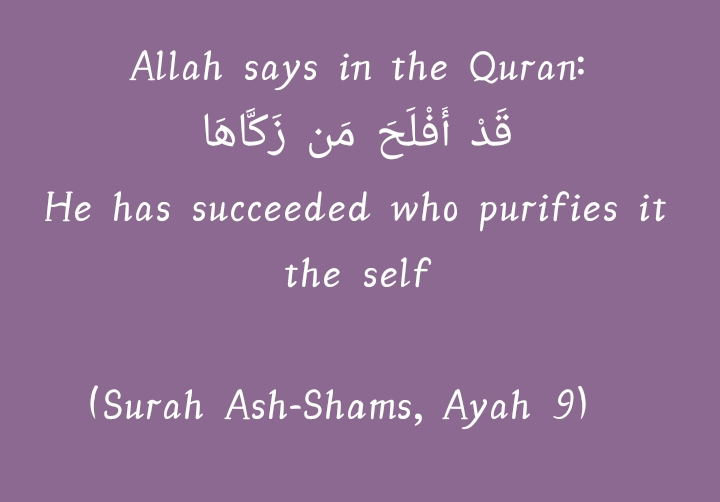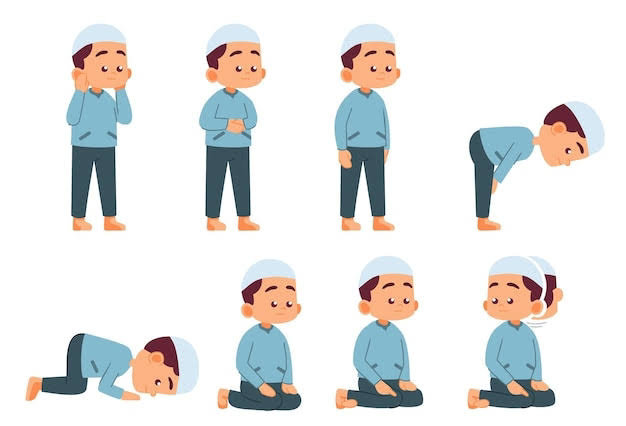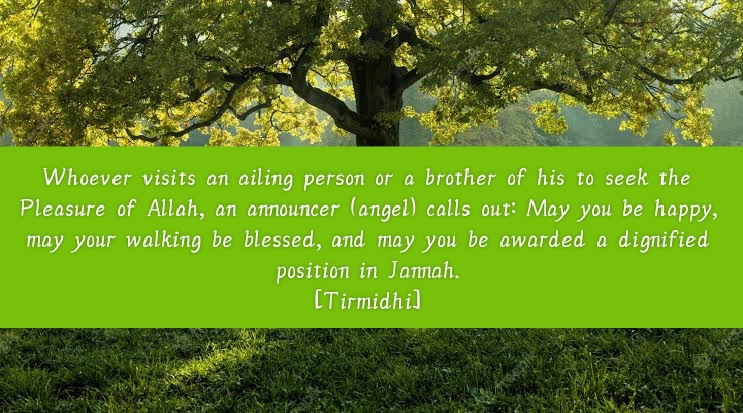Islam teaches us
Islam promotes values such as compassion, justice, honesty and treating others with kindness and respect.In the busyness of our lives, we often forget the purpose of Islam. Islam is a religion that covers many aspects of our lives; Spiritual, mental, physical, family and social. By practicing Islam according to the teachings of Quran and Hadith. Insha Allah the goodness and positivity will shine through in our actions and words.
Islam is a religion that teaches to follow a variety of principles and beliefs. Such as believing in one God (Allah), following the guidance of the Quran as the holy book, and following the Prophet Muhammad as the guide in Islam. It emphasizes acts of worship such as Salah, fasting during Ramadan, charity (zakat), peace, patience and, if possible, making the pilgrimage (hajj) to Mecca. islam is the most beautiful religion globally.
Here are some examples of what Islam teaches its followers
1. Monotheism:-
Belief in one God. Allah is Merciful and Almighty. In Islam the belief in one God, known as "TAWEED," is the central tenet of the religion. The concept of TAWHEED is derived from the Arabic word (Wahid) which means "one." The Islamic belief in one God is expressed in the declaration of faith or "Shahada," Allah is one and Muhammad ﷺ is the Messenger of Allah and followers."
2. Quran:-
The holy Quran is the book of Islam. Allah sent Quran near prophet Mohammad for His belivers.
The Qur'an emphasizes patience and forgiveness, and encourages the seeking of wisdom and understanding. It serves as a source of spiritual guidance for Muslims and promotes a harmonious and just society.
"The holy Quran is the only book in the history of the world that is so unique, matchless that even if millions of scholars of the world come together and try to write a book like the Holy Quran, they will not be able to do so. other books can be altered but not Quran Because
Quran is the only book for which Allah Himself has protected it from any kind of corruption. It is for the reason, since the time Holy Quran has revealed, no any alteration."
3. Prophets:-
Islam recognizes the prophets Muhammad as the final and greatest prophet.
Allah sent messengers and prophets from time to time for the guidance of people. here are some propheto names
حضرت آدم علیہ اسلام (Hazrat Adam A.S)
حضرت ابراہیم علیہ السلام,(Hazrat Ibrahim A.S)
حضرت نوح علیہ السلام (Hazart Nooh A.S)
حضرت موسیٰ علیہ السلام ( Hazrat Moosa A.S),
حضرت یوسف علیہ السلام (Hazart Yusu A.S),
حضرت داؤد علیہ السلام Hazrat Dawood A.S), and
حضرت عیسیٰ علیہ السلام (Hazrat ISA A.S),
and they all believed that Allah is one and told everyone that you should believe in one Allah and forbade believe anyone to be equal or superior from Allah. However, Allah chose his last messenger, prophet Mohammad ﷺ to spread the message of Islam for the last time.
4. Five pillars of Islam: -
Fundamental acts of worship and practice, including declaration of faith.
1- Belief in the oneness of Allah.
2- Five obligatory Salah (Namaz).
3- Zakat. (charity)
4- Fasting in the month of Ramadan.
5- Hajj ( pilgrimage to Mecca hajj if financially, physically, and mentally able.)
5. Ethics in Islam:-
Islam emphasizes honesty, compassion, humility and justice in personal and social matters.
Ethics In Islam Islam places the highest emphasis on ethical values in all aspects of human life. Islam governs all aspects of life.
"Allah says in Quran:
Ethics aims to study both ethical and unethical behavior and make specific judgments about what is right or what is wrong in order to arrive at well-founded judgments and adequate recommendations.
6. Brotherhood in Islam :-
Brotherhood in Islam refers to the strong bond of unity and mutual support between Muslims. It is based on the teachings of the Quran and the actions of the Prophet Muhammad. Muslims are considered part of a global brotherhood regardless of their nationality or ethnicity. The concept promotes compassion, cooperation and helping each other in times of need.
"The Prophet mohmmed said. "He is not a true believer who eats his fill while his neighbour is hungry".(No matter what religion your neighbor belongs to)"
7.Modesty and chastity in Islam:-
Modesty and chastity are of vital importance in Islam. They are considered to be qualities that guide the behavior of both men and women. Modesty involves dressing decently and behaving in a respectable manner, whereas chastity is concerned with maintaining purity in thoughts, actions, and relationships. These values are emphasized to promote respect, self-discipline, and a healthy social environment within the Islamic community. Decency in dress often involves wearing clothing that covers the body appropriately, with specific guidelines for both men and women. Chastity includes abstaining from premarital and extramarital affairs and maintaining moral standards in relations between the sexes. These principles differ in interpretation in different cultural and regional contexts within the Islamic world
8. Respect for others in Islam :-
There is a great deal of emphasis in Islam on respect for others. The teachings encourage treating all individuals with kindness, fairness, and empathy, regardless of their background. This includes respecting elders, showing kindness to children, and treating people of different religions and beliefs with consideration. The concept of "akhlaq" (good character) is integral, promoting humility, patience and avoiding behavior that may harm others. The golden rule, "treat others as you would like to be treated," is a fundamental principle in Islam, which emphasizes the importance of respect in interactions.
Overall It is important to note that Islam, like any major religion, has diverse interpretations and practices among its adherents.
UNESCO declares Islam as the most peaceful religion of the world
The UN body had earlier released a statement which revealed that UNESCO had partnered with the International Peace Foundation to study all the religions of the world and find out which one is the most peaceful among them.
Robert McGee, head of the International Peace Foundation's comparative studies wing, announced at a press conference, which was also attended by UNESCO officials, "After six months of rigorous study and analysis, we have concluded that Islam is the most peaceful religion. "




















